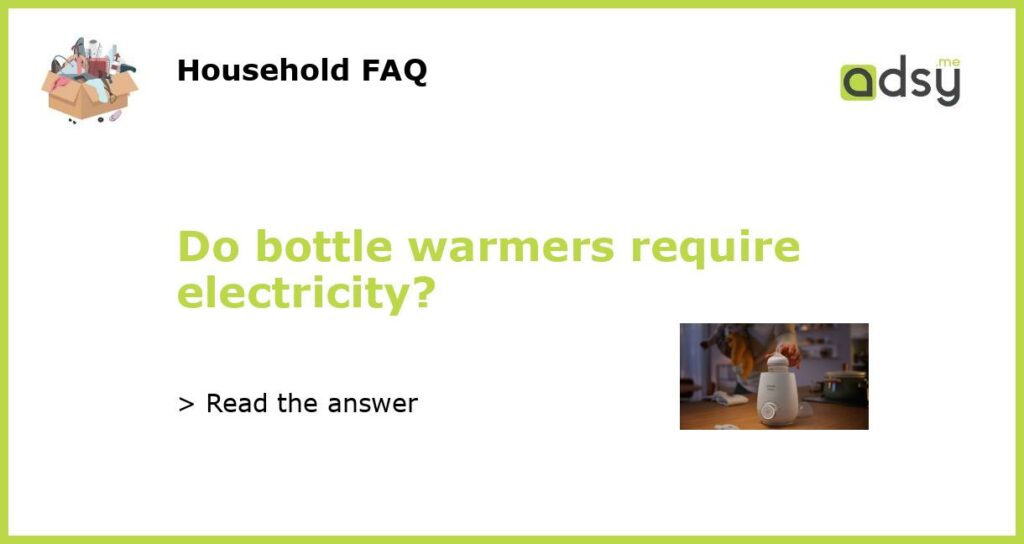When it comes to taking care of a baby, parents often find themselves in need of various devices to make their lives easier. One such device is a bottle warmer, which is used to heat up milk or formula before feeding. However, with concerns about energy consumption and environmental impact, many parents might be wondering if bottle warmers require electricity. In this article, we will explore this question, as well as alternative methods for warming bottles.
Understanding Bottle Warmers
Most bottle warmers available in the market are electric and require electricity to function. This is because they work by heating up a reservoir of water, which then warms up the bottle placed inside. Some models come with additional features, such as timers and temperature controls, to ensure that the milk or formula is at the desired temperature. However, there are also some non-electric options available, such as those that rely on hot water or steam.
Non-Electric Alternatives
For parents who want to avoid using electricity for bottle warming, there are a few alternatives to consider. One option is to use a bowl of hot water, which the bottle can be placed in for a few minutes until it reaches the desired temperature. Another option is to use a bottle warmer that relies on steam from a stovetop or microwave. However, it is important to note that these methods may not be as convenient as electric bottle warmers, and may take longer to heat up the bottle.
Energy Efficiency
While electric bottle warmers do require electricity to function, some models are designed to be more energy-efficient than others. For example, some models have a low-wattage design, which means they use less energy when heating up the water. Additionally, some models come with an auto shut-off feature, which turns off the warmer once the bottle is heated, preventing unnecessary energy consumption. When shopping for an electric bottle warmer, it is worth looking for models that prioritize energy efficiency.
In conclusion, most bottle warmers available in the market do require electricity to function. However, for parents who want to avoid using electricity, there are non-electric alternatives to consider. Additionally, some electric models are designed to be more energy-efficient than others, which can help reduce their environmental impact. Ultimately, the choice of whether or not to use a bottle warmer is up to individual parents and their preferences, but it is important to be aware of the different options available.






